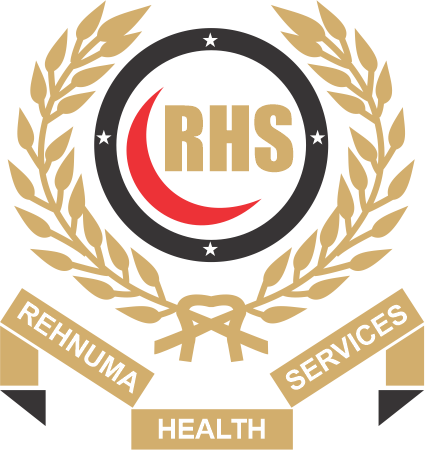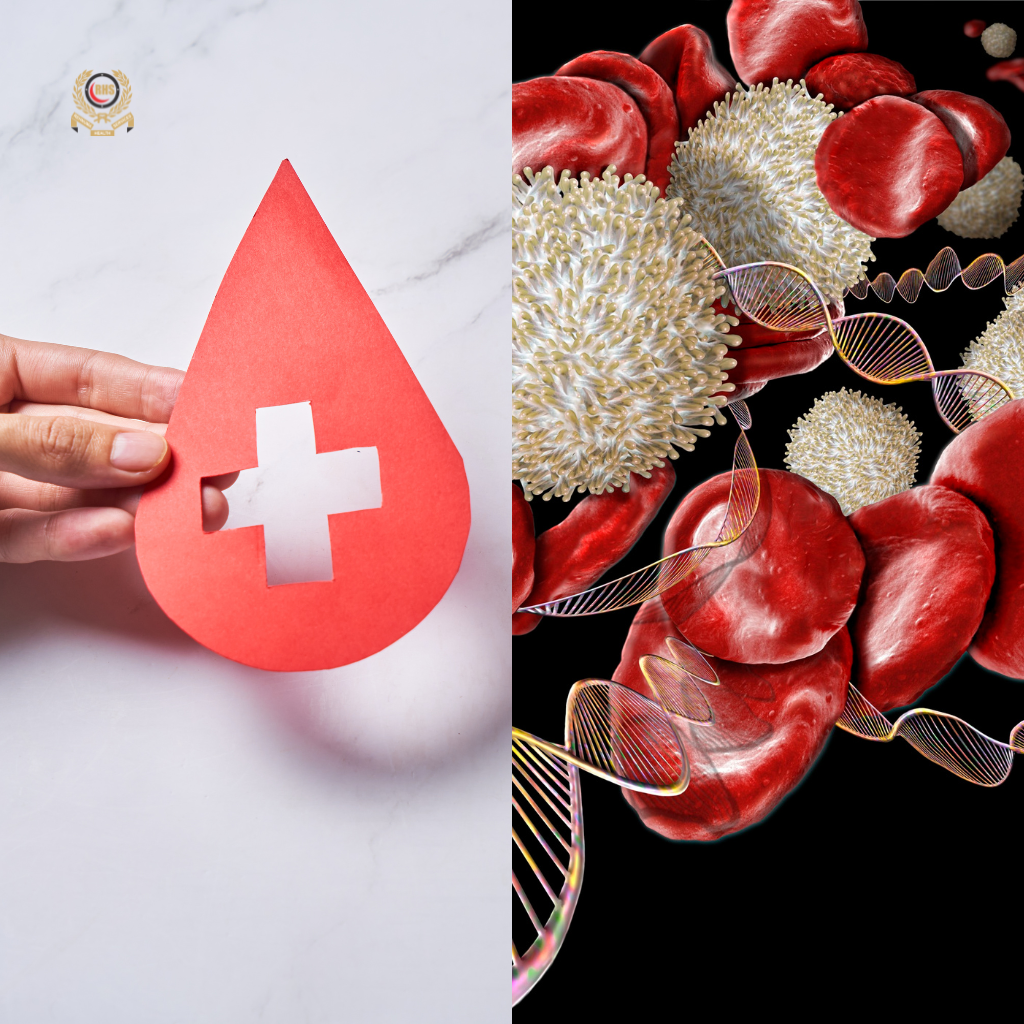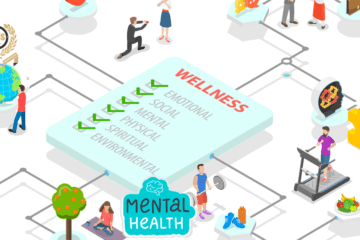Introduction
Every year on April 17, the world meets to observe Hemophilia Awareness Day, a global initiative to raise awareness about hemophilia and other inherited bleeding disorders. In 2025, the theme echoes a powerful message of “Access for All: Prevention of Bleeds as the Global Standard of Care.” This day serves as an educational platform and a reminder to support individuals and families living with these challenging conditions.
At Rehnuma Health Services, serving in Islamabad and Rawalpindi, we are deeply committed to delivering compassionate care to all patients, including those battling rare disorders like hemophilia. Through this blog post, we aim to inform, inspire, and advocate for greater support and awareness across Pakistan and beyond.
What is Hemophilia?
Hemophilia is a rare, inherited bleeding disorder in which the blood does not clot properly due to the absence or low levels of clotting factor proteins necessary for blood coagulation. The two most common types are:
- Hemophilia A (caused by a deficiency in factor VIII)
- Hemophilia B (caused by a deficiency in factor IX)
This disorder can lead to spontaneous bleeding, excessive bleeding after injuries, and even life-threatening hemorrhages.
Global Significance of Hemophilia Awareness Day
Hemophilia Awareness Day, spearheaded by the World Federation of Hemophilia (WFH), serves as a beacon of hope. It sheds light on the challenges faced by individuals and families and calls for global solidarity. The ultimate goal is to ensure that “Treatment for All” becomes a reality, not a privilege.
Why April 17?
April 17 is celebrated to honor the birth anniversary of Frank Schnabel, the founder of WFH. He was a Canadian businessman born with severe hemophilia who dedicated his life to advocating for better treatment and understanding of bleeding disorders.
Hemophilia in Pakistan
While hemophilia affects approximately 1 in 10,000 births worldwide, the numbers in Pakistan are underreported due to a lack of diagnosis, social stigma, and limited medical facilities.
Current Challenges in Pakistan
- Limited Awareness: Many people, especially in rural areas, are unaware of bleeding disorders.
- Lack of Diagnostic Facilities: Diagnosis is often delayed, resulting in complications.
- High Cost of Treatment: Factor replacement therapy is expensive and not readily available to most families.
- Stigma and Isolation: Cultural misconceptions often lead to discrimination and social isolation.
At Rehnuma Health Services, we believe that every patient deserves access, dignity, and proper medical care, regardless of the complexity of their condition.
Signs and Symptoms of Hemophilia
Early diagnosis can be lifesaving. Recognizing the signs and symptoms of hemophilia is essential, especially for parents with a family history of the condition. Common signs include:
- Excessive bleeding after minor cuts or dental procedures
- Unexplained and frequent bruises
- Painful and swollen joints due to internal bleeding
- Prolonged bleeding from injuries or surgeries
- Blood in urine or stool
Diagnosis and Treatment
How is Hemophilia Diagnosed?
- Family History: A strong indicator in cases where relatives have similar bleeding tendencies.
- Blood Tests: Coagulation factor assays are used to identify and measure the clotting factor levels.
- Genetic Testing: Especially helpful for carrier detection and prenatal diagnosis.
Modern Treatment Options
- Replacement Therapy: The most effective treatment, involving the infusion of clotting factors.
- Desmopressin (DDAVP): A synthetic hormone used in mild cases of Hemophilia A.
- Antifibrinolytic Medicines: Help prevent clots from breaking down too quickly.
Gene Therapy (Emerging): A promising future avenue for a potential cure.
Living with Hemophilia
Living with hemophilia requires daily management, awareness, and support. With the right care and lifestyle adjustments, people with hemophilia can lead active, fulfilling lives.
Tips for Managing Hemophilia
- Avoid contact sports or activities that may lead to injury.
- Routine check-ups and factor level monitoring.
- A healthy diet rich in calcium and vitamin D supports bone health.
- Regular physiotherapy for joint health.
- Stay informed and connected with hemophilia support groups.
Role of Family and Community
Support from family and community plays a vital role in empowering individuals with hemophilia. Educating caregivers, teachers, and friends about the condition helps create a safe environment.
Important Steps to Take:
- Encourage open conversations about the condition.
- Educate school staff and peers.
- Provide emotional and psychological support.
Prepare an emergency action plan for bleeding episodes.
Hemophilia and Children
Hemophilia can be especially hard for children and their parents. Early diagnosis, proactive treatment, and emotional support can help children live a normal life.
At Rehnuma Health Services, we provide child-focused nursing care and in-home support services for families managing chronic illnesses like hemophilia. Our trained staff ensures comfort and safety for pediatric patients in Islamabad and Rawalpindi.
The Role of Nursing Care in Hemophilia
Nurses are frontline caregivers for hemophilia management. They administer infusions, educate families, and help monitor complications. Rehnuma Health Services offers skilled nursing attendants at home, available 24/7, helping patients manage bleeding episodes in the comfort of their homes.
Our specialized services include:
- Infusion administration
- Wound care
- Routine monitoring
Emergency support
Hemophilia and Mental Health
The psychological burden of a chronic condition like hemophilia should not be underestimated. Patients often struggle with anxiety, depression, and social withdrawal. Mental health support is crucial.
Coping Strategies:
- Join local or online support groups.
- Practice mindfulness and stress management techniques.
- Seek professional counseling if needed.
- Engage in hobbies and creative outlets.
Global Efforts and Future Outlook
Thanks to advocacy and technological advancement, the future for people with hemophilia is bright. Countries across the globe are:
- Improving diagnosis through national registries.
- Expanding access to treatment.
- Investing in research for gene therapy and long-lasting clotting factor products.
- Raising awareness through campaigns and education.
Pakistan must continue to invest in:
- Training healthcare workers
- Subsidizing treatment options
- Creating public-private partnerships
- Developing hemophilia care centers
How You Can Help on Hemophilia Awareness Day 2025
Even small efforts can make a huge difference. Here’s how you can show your support:
- Wear Red – The symbolic color for hemophilia awareness.
- Share a Post –Use your social media to educate others.
- Organize Awareness Events – Schools, workplaces, and clinics can host events.
- Donate – Support organizations working for hemophilia care.
- Volunteer – Join support programs or health campaigns in your area.
Conclusion: Together for a Bleed-Free Future
Hemophilia Awareness Day 2025 is a call to action. It reminds us that no one should suffer in silence. Every patient deserves timely diagnosis, quality care, and dignity in life.
Let us pledge to educate, empower, and support individuals with hemophilia not just on April 17, but every single day.
Together, we can break the silence. Together, we can stop the bleeding.




